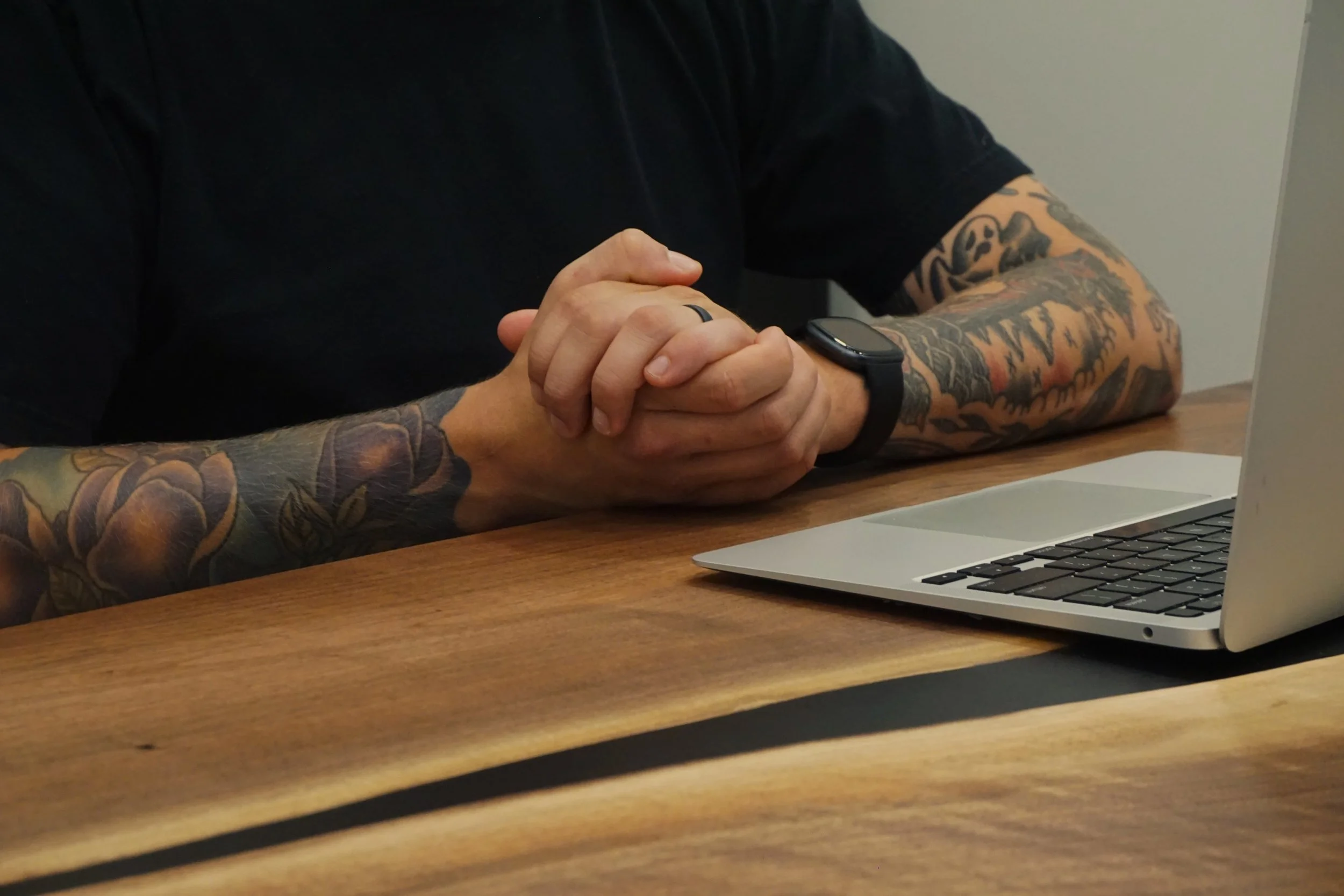Working Together
Everyone comes in with their own story, and there’s no “one-size-fits-all” approach to counselling.
At Redline Recovery, we take a personalized approach to counselling, meeting you where you’re at and finding what works best for you, we’ll build a plan that fits your goals, your pace, and your reality. Our focus is on real-world tools, evidence-based therapy, and creating space to reset, recover, and move forward. I use different methods depending on what you’re dealing with and what feels like a fit for you.
Here’s what that can look like:
Acceptance and Commitment Therapy (ACT)
Life throws a lot at us. Sometimes the harder we try to push away stress, anxiety, or bad memories, the louder they get. ACT is about learning how to make room for those tough thoughts and feelings without letting them control you. Instead of battling your mind, you start putting your energy into what actually matters to you: your values, your goals, your relationships. This approach gives you practical tools to handle burnout, anxiety, or depression while building a life that feels meaningful, even when things aren’t perfect.
Attachment-Focused Therapy (AFT)
The way we connect with others, (family, partners, friends, even coworkers), is shaped by our earliest relationships and life experiences. When those bonds were strong and supportive, we usually feel more secure as adults. But if there were breaks, losses, or trauma, it can show up later as difficulty trusting, fear of being let down, or feeling disconnected. Attachment-Focused Therapy helps you understand those patterns and build healthier ways of relating now. It’s about creating stronger, more secure connections with yourself and with the people who matter most, so you don’t feel like you’re carrying everything alone.
Cognitive Behavioural Therapy (CBT)
We all get stuck in loops, certain ways of thinking that fuel stress, anger, or low moods. CBT helps you spot those unhelpful thought patterns and replace them with ones that actually serve you. It’s very practical: we look at what’s happening in your mind, how it’s affecting your feelings and actions, and what can be shifted. For things like anxiety, depression, or addiction, CBT gives step-by-step ways to challenge negative thinking and build healthier coping skills.
Eye Movement Desensitization and Reprocessing (EMDR)
When you’ve been through something tough - a call that sticks with you, trauma from the past it can feel like part of you is stuck there. EMDR helps your brain re-process those memories so they don’t hit you as hard. Through bilateral stimulation (eye movements, tapping, buzzing) , it helps your nervous system calm down and “file away” the memory properly. People often find they can think about the event without being flooded by it. It’s not about forgetting, it’s about taking away the sting so you can move forward.
Motivational Interviewing (MI)
Sometimes change feels like a tug-of-war. Part of you wants things to be different, but another part is tired, unsure, or even resistant. MI helps cut through that. It’s a conversation style that focuses on your reasons for change, not me lecturing you. Whether it’s about stress, drinking, burnout, or life direction, MI helps you uncover your own motivation and build confidence that you can actually follow through. It’s about working with you, not against you.
Solution-Focused Therapy (SFT)
When life feels heavy, it’s easy to lose sight of what’s working. Solution-Focused Therapy keeps the spotlight on your strengths and the progress you’ve already made, even if it’s small. Instead of spending all our time on the problem, we focus on the steps that move you toward a better future. It’s practical, efficient, and built around the idea that you already have tools and resilience — we just need to put them to work.
Ketamine-Assisted Psychotherapy (KAP)
Ketamine-Assisted Psychotherapy (KAP) is an innovative therapeutic approach that combines the use of ketamine with psychotherapy to help individuals access deeper insight, emotional processing, and relief when traditional therapy methods have not produced the desired results. Alex actively practices KAP as an independent contractor with Field Trip Health in Waterloo. If you have been struggling to see progress with conventional approaches and are curious about alternative options, reach out to Alex to discuss your goals and determine whether KAP may be an appropriate fit for you.
The ‘Big Picture’
These approaches aren’t about labeling you or making you sit in theory. They’re about giving you real ways to handle stress, heal from the tough stuff, and move toward the life you want.
Let’s figure out what approach works best for you. Book a free 15-minute consultation to get started.

